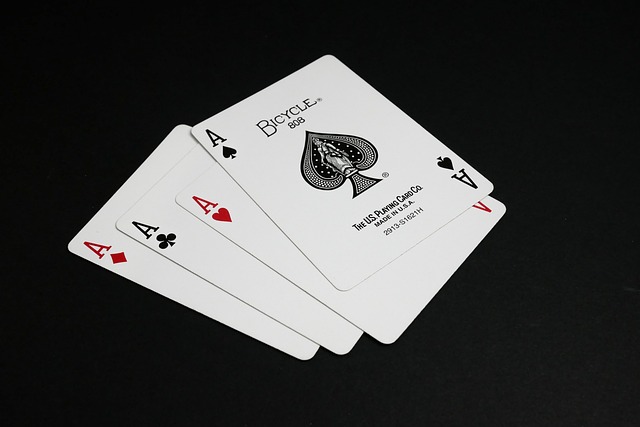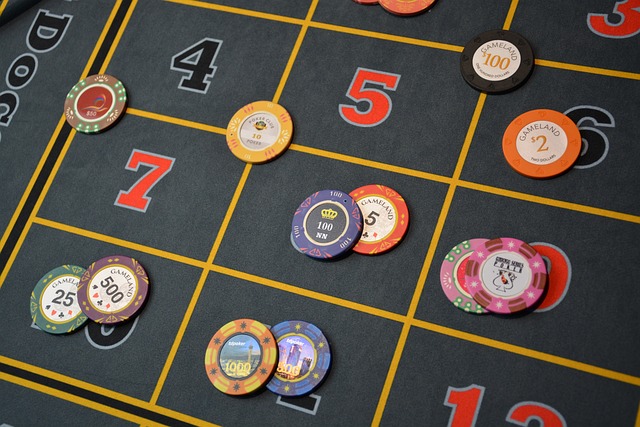
The bad thing about working in a gaming company is that it is difficult to be smart. If you boast of understanding football or of being a crack in the field of betting, there will always be a trader, usually English, who makes you see that you are an amateur, if you boast of having a method to play roulette, someone from the team de Casino will make you see that it doesn’t work, and if you start talking about Poker… pray that no member of the Poker team listens to you, because then it’s clear to you.
I experienced it myself. At that time I was working in London, and one day, in the company canteen, I was discussing with some colleagues that in Spain I used to do poker games. Nothing serious, don’t believe it, my 2 cousins and a couple of lifelong friends. Basically, an excuse to have a bottle at home… But I was unlucky that Paul Pham passed by at that moment.
Member of the Poker team and a little left over, it must be said, he asked me with a smile… “Hey, Enrique, do you play Poker? What kind of player are you?”… Okay, man, let’s see how you get out of this, I thought, and I answered with my best smile, “well, one of those who almost always wins”… Paul smiled too and continued on his way to the microwave, while the poor Spaniard tried to hide his inability to answer that simple question…
But, beware, when I wear, I wear, and when I got home, in my beloved neighborhood of Hendom, I searched the internet to find out what the answer to that question was. In any case, I must tell you that I can finally classify myself as Tight-Passive. And you… What kind of players are you?
Loose-Passive

Let’s go with it, gentlemen, that knowledge does not take place. First of all we will talk about the ‘Loose-Passive’, which is basically the player who usually goes to most of the hands pre-flop and who also usually calls the bets once we enter the ‘turn’ and the ‘river’ . They don’t usually raise the bets, but they do have a habit of calling most of the bets even if they don’t have big plays. Just to see what happens.
If we find ourselves with a player of this class, our bluffs can be our downfall, since this type of opponent ‘goes all out for sport’, as a friend of mine would say, and we will have to bet big to back him out. But if we have good cards… It could be the perfect rival.
And if you just discovered that you are Loose-Passive, try not to discover your tactic. Hold on to your desire to go all out, or try to throw off your opponents by raising the stakes from time to time. If not, they will end up discovering your game.
Loose-aggressive
We are facing what has been a killer. He’s going to go all in, blow for blow. Raising the stakes and playing aggressively on a high percentage of hands. It can become a real nightmare for your opponents in No Limit Holdem games as they can raise the pot significantly and you will have to be very sure of yourself to rise to the challenge.
In the long term they tend to lose, since risking so much means leaving a lot of chips behind when you lose, but in short distances they are very dangerous players, since with moderately good plays, they will stop at nothing or nobody, and if they manage to catch a hot streak, they can wreak havoc on their table opponents.
If we play against a Loose-Aggressive, let’s forget about bluffing. We are not going to intimidate him, but let us not be intimidated by his attacks either. He’s going to raise whether he has cards or not, so maybe we can take advantage of the situation and win a good amount of chips without having to hit a great hand.
If you are one of these killers, congratulations, you are going to have the upper hand in the vast majority of hands, but be careful, try not to go to all of them, because they will end up catching your game, in the end they will catch you in a bad move and there are times when it is clear that the rival has better cards than you… and you know it.
Tight-Passive or ‘rock’

I mean, me. Yes, okay, it can be a bit of a pain to play with me, I’m one of those who play few hands and usually only do it when they have cards. I admit it, we don’t give a lot of action to the games, and we don’t usually stay with significant profits either, so, rich, we’re not going to get rich, but we will always have money for the taxi when the game is over.
The truth is that when the rivals detect a Tight-Passive, they are on their guard when it comes to accepting their bets, since normally when one of these players makes a ‘call’ or raises the bets, it is because they have played, like this that if you are at the table with one of them, be attentive to each of their movements, because they do not stitch without a thread.
And if you’re one of me, the advice is to change your pace from time to time. Bluff yourself at some point, surprise them, even if you risk losing, because if it goes well you will take the street boat and if not, at least you will leave them out of place… and you will always have money for the taxi.
Tight-Aggressive
The midpoint, the balance, the ‘total poker’, the control, in short. The toughest type of opponent to beat, say some professionals. He is a selective and methodical player, who knows when to bet big and when to tempt his rivals with small bets. They know how to combine bluffs with safe plays, and they also know when they have to leave the pot for the rest and watch the bulls from the sidelines, but it is also true that they are methodical, and if we are able to discover their game, we can have a certain advantage over them .
Are you facing a Tight-Aggressive? Well, it’s your turn to be a detective. Study him for the first few hands and try to figure out his playing pattern. It will be difficult, but we all have a Hercules Poirot inside us, so put your gray cells to work.
And if you are one of them… my respects and advice. Try to vary the pattern of play from time to time. If you succeed, you will have the table under your control and you will go from being good to becoming a legend.


